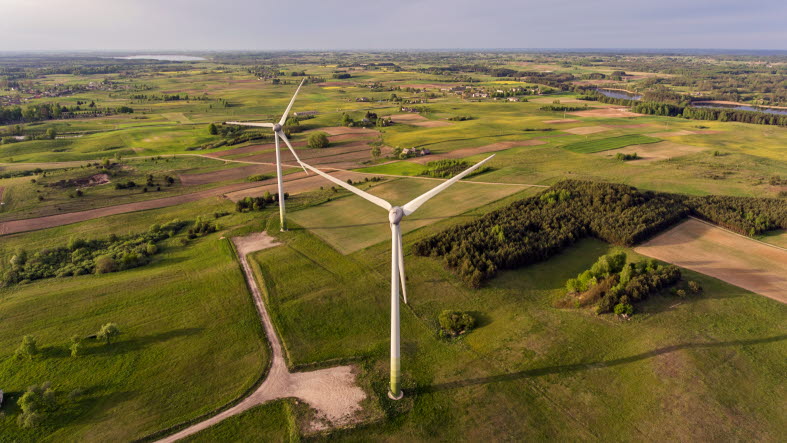The financing is intended for the Akmenė Two project developed by Aquila Clean Energy EMEA, the clean energy arm of German investment management firm Aquila Group.
Akmenė Two will have an onshore capacity of 99.2 megawatts (MW) and consist of 16 turbines with a capacity of 6.2 MW each. It is scheduled to be commissioned in 2026.
“This is one of the bank’s most important transactions in Lithuania recently, and the financed wind park is currently the largest project of its kind here in terms of electricity generation,” says Tadas Jonušauskas, Head of Corporate Banking at SEB Lithuania.
This will be the second wind farm Aquila Clean Energy builds in northern Lithuania. The first project, Wind farm Akmenė One has a capacity of 74.4 MW, and was also financed by SEB, which granted a green loan.
“We are delighted to be partnering with SEB again. Driving forward the energy transition and bringing affordable, clean energy to European markets is our company’s most important goal,” says Andrew Wojtek, CEO of Aquila Clean Energy EMEA.
Lithuania produced around four terawatts (TWh) of electricity from renewable sources last year, accounting for 70 per cent of total production. More than half of this, around 2.5 TWh, came from wind energy. The amount of energy produced by wind power plants increased by 66.8 per cent last year compared to 2022.
The increased production brought Lithuania closer to its goal of energy independence. According to data from the national grid operator (Litgrid), local production covered 48 per cent of Lithuania’s total electricity demand last year. This is the highest figure since 2010, when the Ignalina nuclear power plant started its commercial operation. Last year, Lithuania’s electricity import decreased by 12.7 per cent compared to 2022.
Lithuania’s national independence strategy envisages the country generating 100 per cent of its electricity requirements from renewable sources by 2050.

